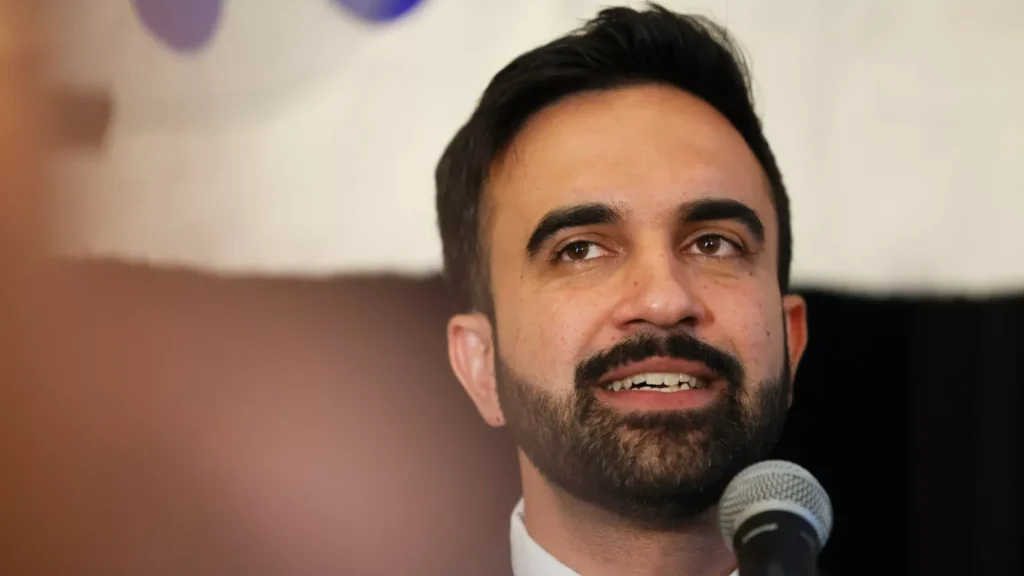
New York City, June 26, 2025 – Zohran Kwame Mamdani, a 33-year-old Indian-American state assemblyman, has made history by securing the Democratic nomination for New York City mayor, defeating former Governor Andrew Cuomo in a stunning upset during the June 24 primary election. Born in Kampala, Uganda, to an Indian father, renowned scholar Mahmood Mamdani, and Indian-American filmmaker mother Mira Nair, Mamdani’s multicultural roots and progressive vision have positioned him as a trailblazer, potentially becoming the city’s first Muslim and Indian-American mayor if elected in November.
Mamdani’s campaign, laser-focused on affordability, resonated with a diverse coalition of voters across Manhattan, Brooklyn, and Queens. His platform, which includes rent freezes, free buses, universal childcare, and city-run grocery stores funded by $10 billion in new taxes on corporations and the wealthy, has electrified progressives while drawing sharp criticism from moderates and conservatives. Endorsements from high-profile figures like Representative Alexandria Ocasio-Cortez and Senator Bernie Sanders bolstered his grassroots momentum, leading to a commanding 43.5% of first-place votes in the ranked-choice election.
Raised in Queens after living in South Africa, Mamdani’s global upbringing shapes his commitment to social justice and equity. His father’s academic legacy and his mother’s cinematic storytelling have influenced his ability to connect with diverse communities, particularly in immigrant-heavy neighborhoods like Richmond Hill, where Muslim-American voters celebrated his candidacy as a reflection of their identity. However, his progressive policies and vocal criticism of Israel’s policies toward Palestinians have sparked controversy, with some Jewish leaders and MAGA-aligned commentators labeling him antisemitic—a charge he refutes, emphasizing his commitment to the safety of all communities, including Jews.
Mamdani’s opponents, including incumbent Mayor Eric Adams, who called him a “snake oil salesman,” and Republican candidate Curtis Sliwa, have criticized his socialist policies as unrealistic. Additionally, posts on X have accused Mamdani of anti-Hindu sentiments and refusing to condemn the Holocaust, though these claims remain unverified and contentious. Despite such attacks, Mamdani’s focus on affordability and his pledge to “reach further” to understand opposing perspectives have kept his campaign vibrant.
As Mamdani heads toward the general election, his journey from a little-known assemblyman to a citywide contender underscores a shift in New York’s political landscape. For the Indian-American community, his rise is a moment of pride, reflecting the growing influence of the diaspora in American politics. Whether his vision resonates with the broader electorate in November will determine if he can cement his place in history as New York City’s next mayor.
By YaHind.com Staff





